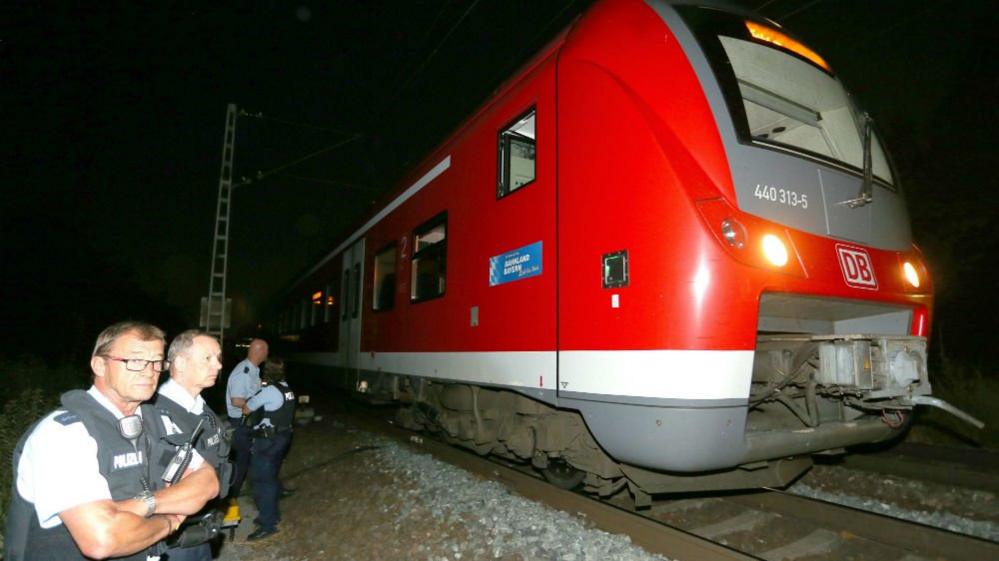Germany probes arrested 'IS cell' Syrians for links to Paris attacks
- Published
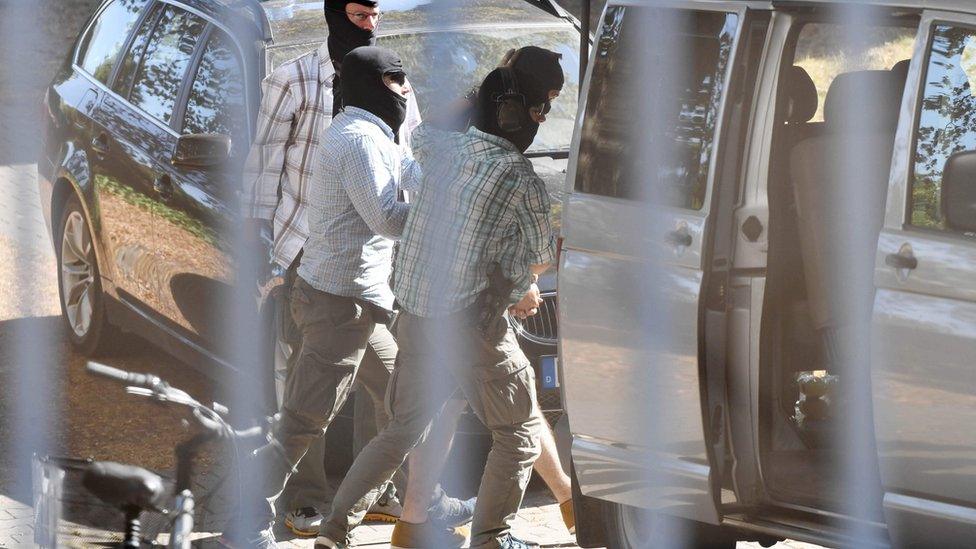
The arrested Syrians are said to have been under surveillance for months
German authorities are investigating whether three Syrians held on suspicion of working for so-called Islamic State had links to the Paris attackers.
Interior Minister Thomas de Maiziere said the men, one of them 17, appeared to have been smuggled to Europe through some of the same channels.
They were detained after a series of pre-dawn raids in the states of Schleswig-Holstein and Lower Saxony.
They are said to have travelled through Turkey and Greece on false passports.
They have been named only as Mahir al-H, 17, Ibrahim M, 18, and Mohamed A, 26.
Investigations so far suggest the three came to Germany in November 2015 with the intention of "carrying out a previously determined order [from IS] or to await further instructions", prosecutors said in a statement.
The Federal Public Prosecutor's office has said no concrete missions or orders have so far been found, despite the seizure of "extensive material".
Mr de Maiziere said those arrested could have constituted a "sleeper cell" - a unit of people who remain dormant and inconspicuous in a community until activated.
Fake passports
The suspects were arrested when 200 police and security officers raided six locations, including three refugee shelters.
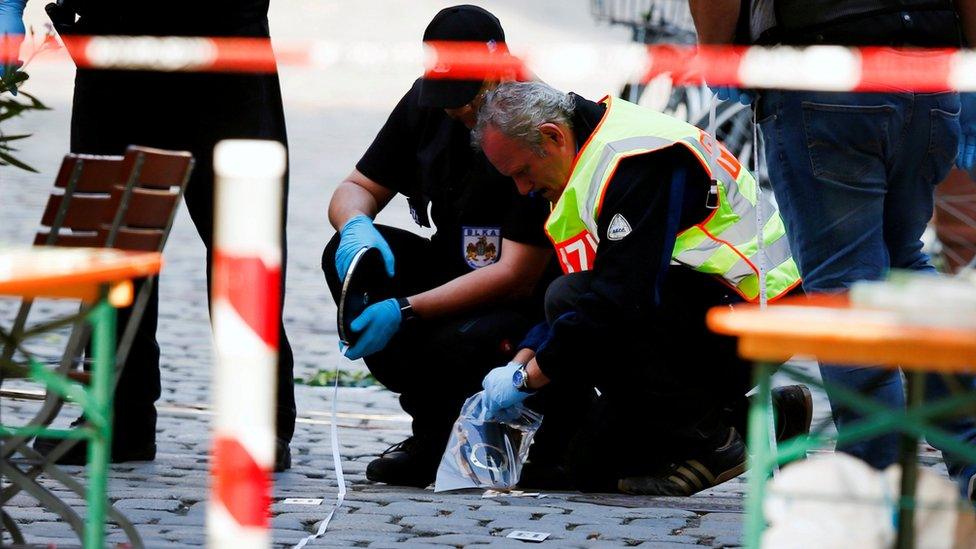
The arrests come less than two months after 10 people died in attacks in southern Germany
The 17-year-old had been trained in handling weapons and explosives in Raqqa, IS's stronghold in Syria, prosecutors said.
They received fake passports, mobile phones loaded with a pre-installed communication programme and four-figure cash sums in US dollars.
At a news conference, Mr de Maiziere said they were trafficked into Europe by the same organisation that supported the three men who blew themselves up outside the Stade de France national football stadium in Paris on 13 November last year.
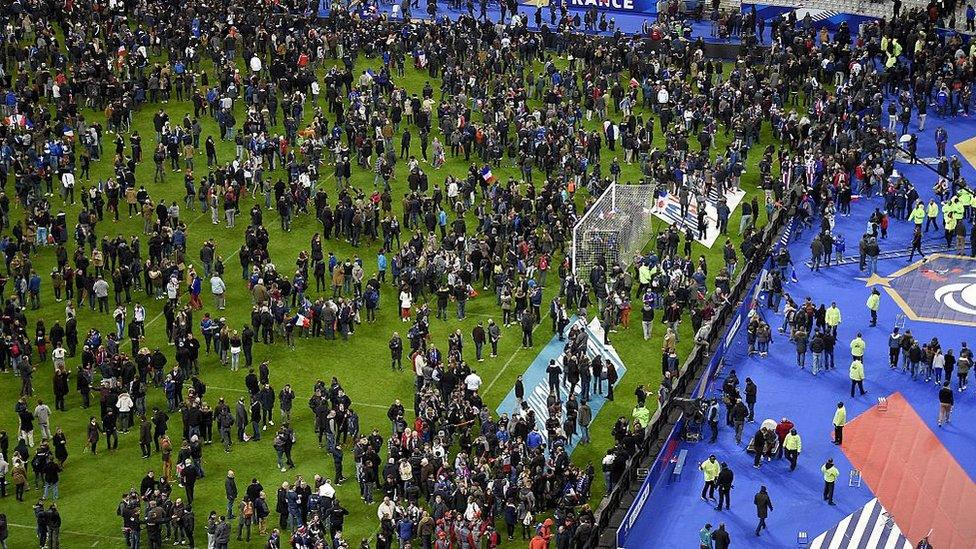
Germany says the three arrested men could have been smuggled by the same group that trafficked those behind the attacks on Paris's Stade de France last November
A bystander also died - one of the total of 130 people killed in a series of co-ordinated attacks that night.
Paris attacks: Who were the attackers?
"Everything points to the fact that the same smuggler organisation behind the Paris attacks also brought the three men to Germany who were arrested," Mr de Maiziere said. "Indications are that their travel documents all came from the same workshop in that region."
That showed that Western nations faced the same "shared threat" and thus "shared interests in the averting that threat" through security co-operation.

The battle to ease rising concerns - BBC's Jenny Hill in Berlin
These arrests come as ministers try to reassure a nervous German public that the arrival of more than a million asylum seekers has not put the country in danger. There is a febrile national debate here around integration and domestic security which will dominate campaigning ahead of next year's general election.
The security services have long suspected that IS is using the refugee crisis to infiltrate Germany. The country's interior minister has now acknowledged that is likely. But he was at pains to point out that the authorities are investigating a relatively small number of suspects among the hundreds of thousands of new arrivals, and to emphasise that the security services investigate every intelligence lead.
The German authorities are no doubt pleased to have broken what they are describing as a sleeper cell. But the arrests will most likely simply increase public concern.

Mr de Maiziere said the men had been under observation for months.
But he also cautioned that the arrests should not raise suspicions against refugees in general.
"We are actually talking about around 60 investigations [into migrants] and that's among many hundreds of thousands of newly arrived people."
The government has been under pressure to reduce the number of refugees it admits - more than a million in 2015 - under Chancellor Angela Merkel's "open-door" policy.
The nation remains uneasy after attacks this summer.
Over one week in July, 10 people were killed and dozens more wounded in separate gun, bomb, axe and machete attacks in the south of the country.
Islamic State appeared to play a role in two of those attacks, by asylum seekers in Wuerzburg and Ansbach. In both cases, the attackers were killed.
In early June, three Syrian men were arrested on suspicion of plotting an IS suicide attack in the western city of Duesseldorf.
- Published20 December 2016
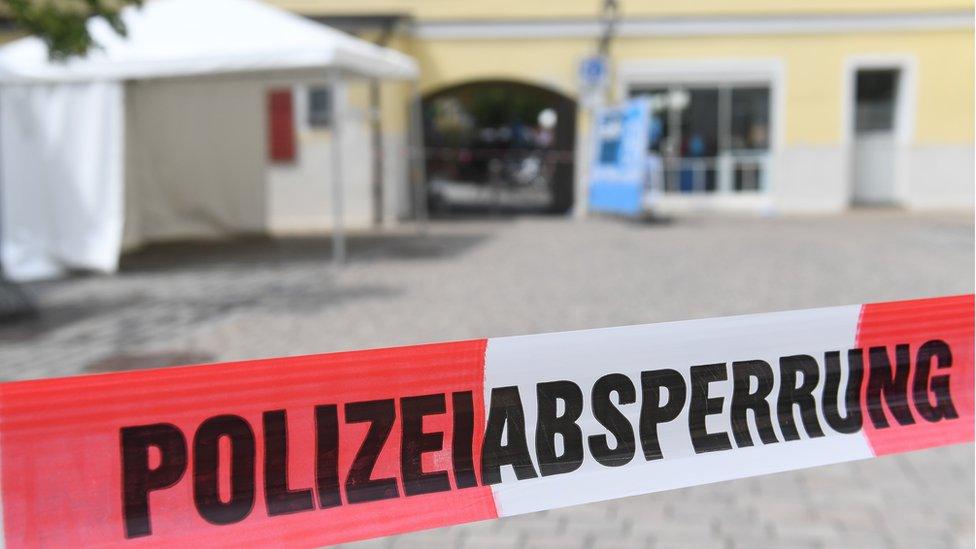
- Published26 July 2016
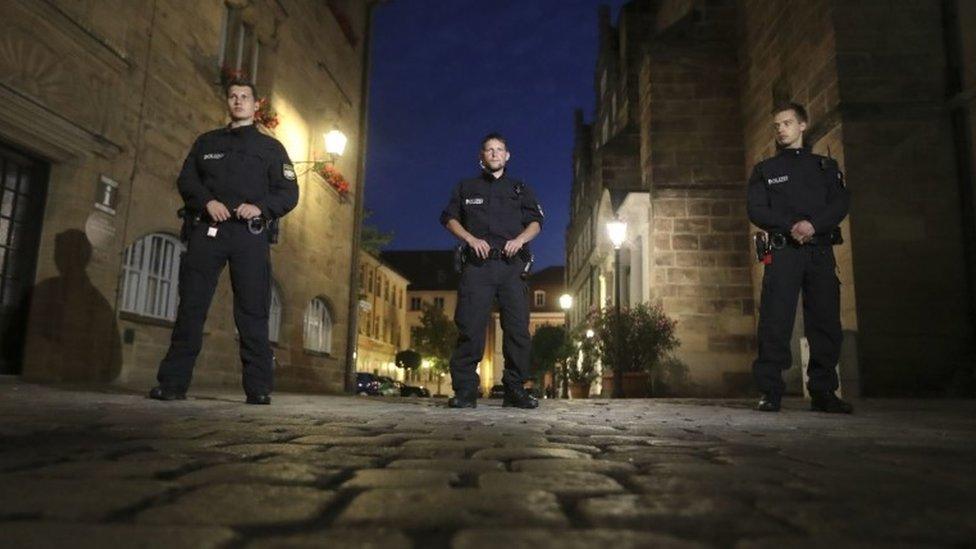
- Published23 July 2016
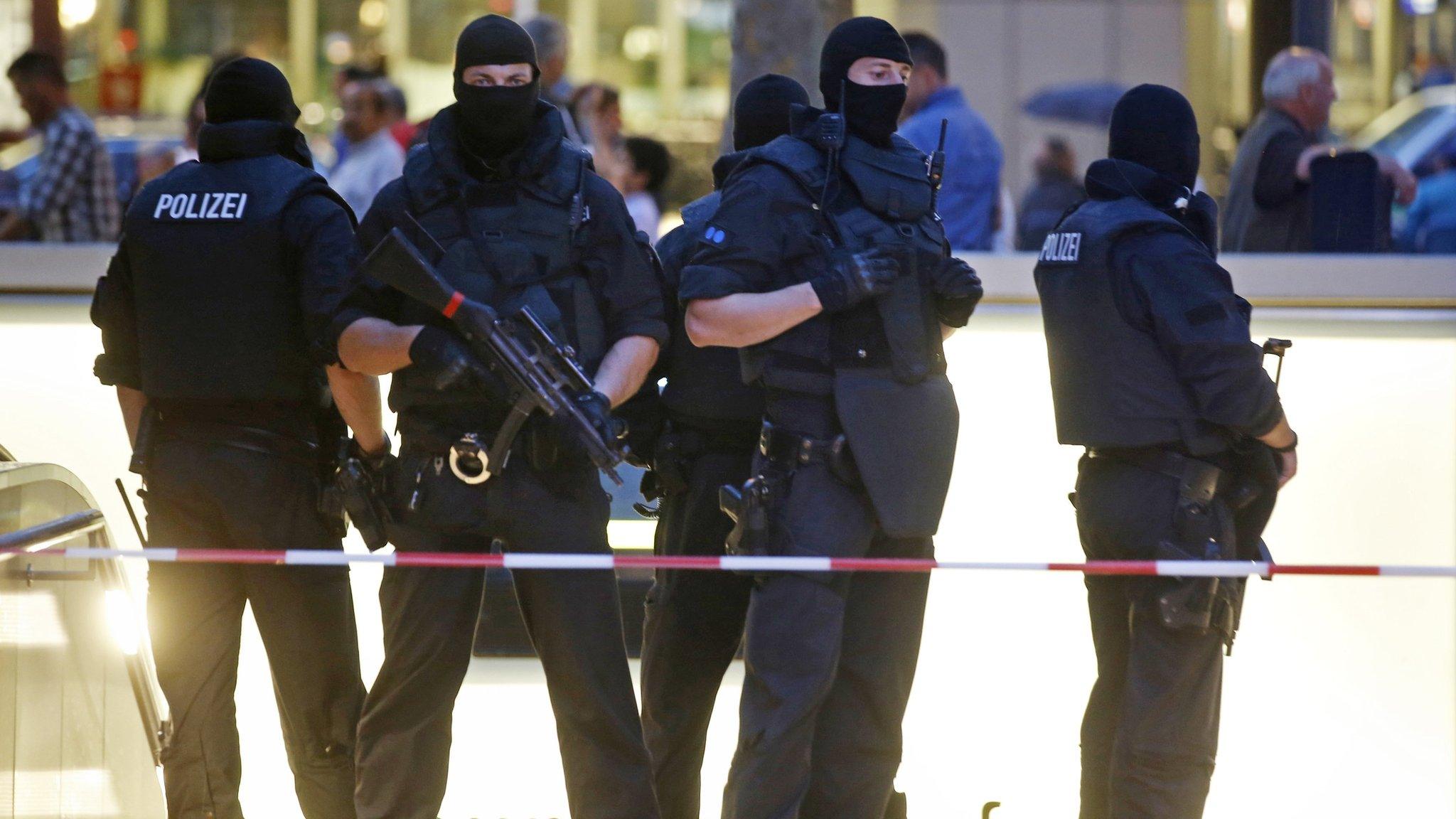
- Published25 July 2016
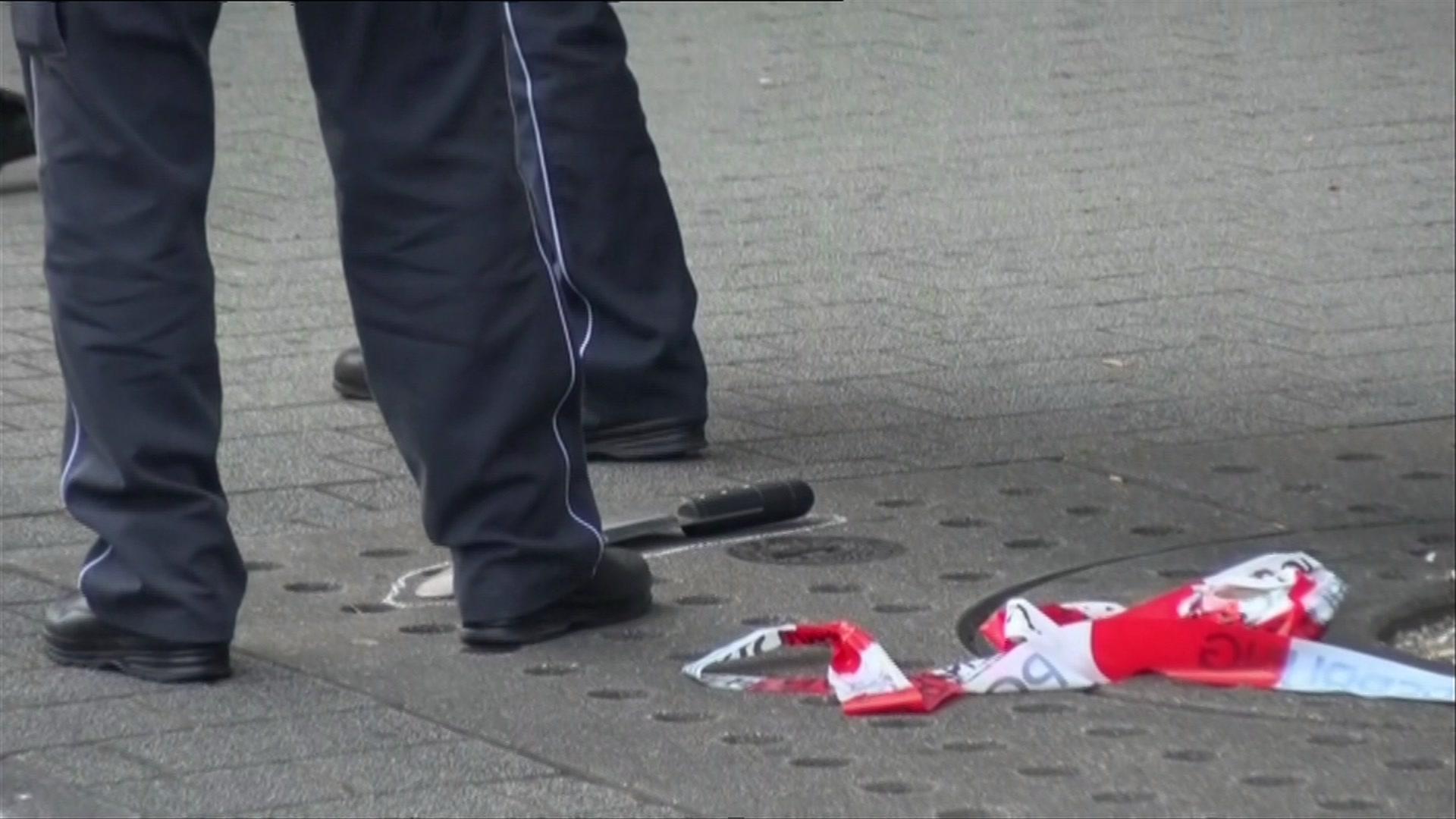
- Published25 July 2016
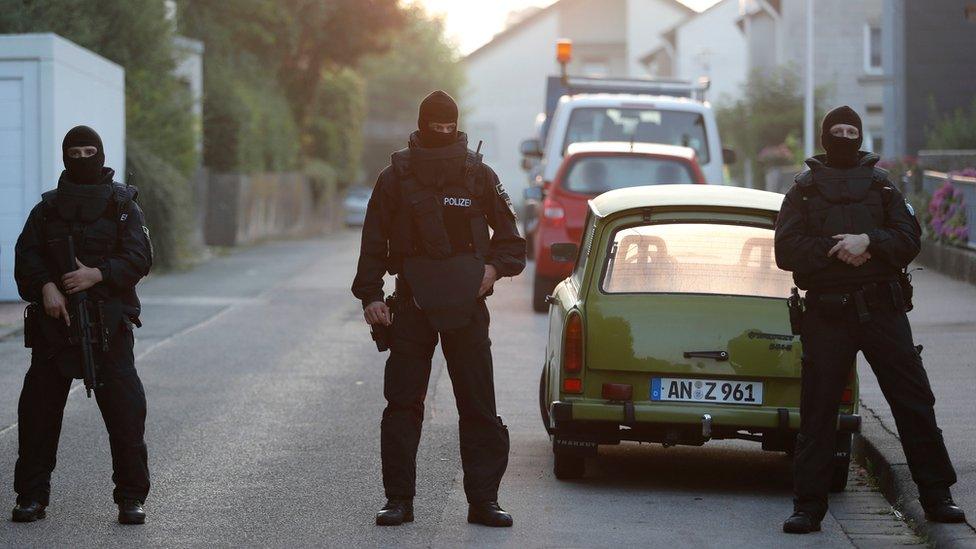
- Published19 July 2016
